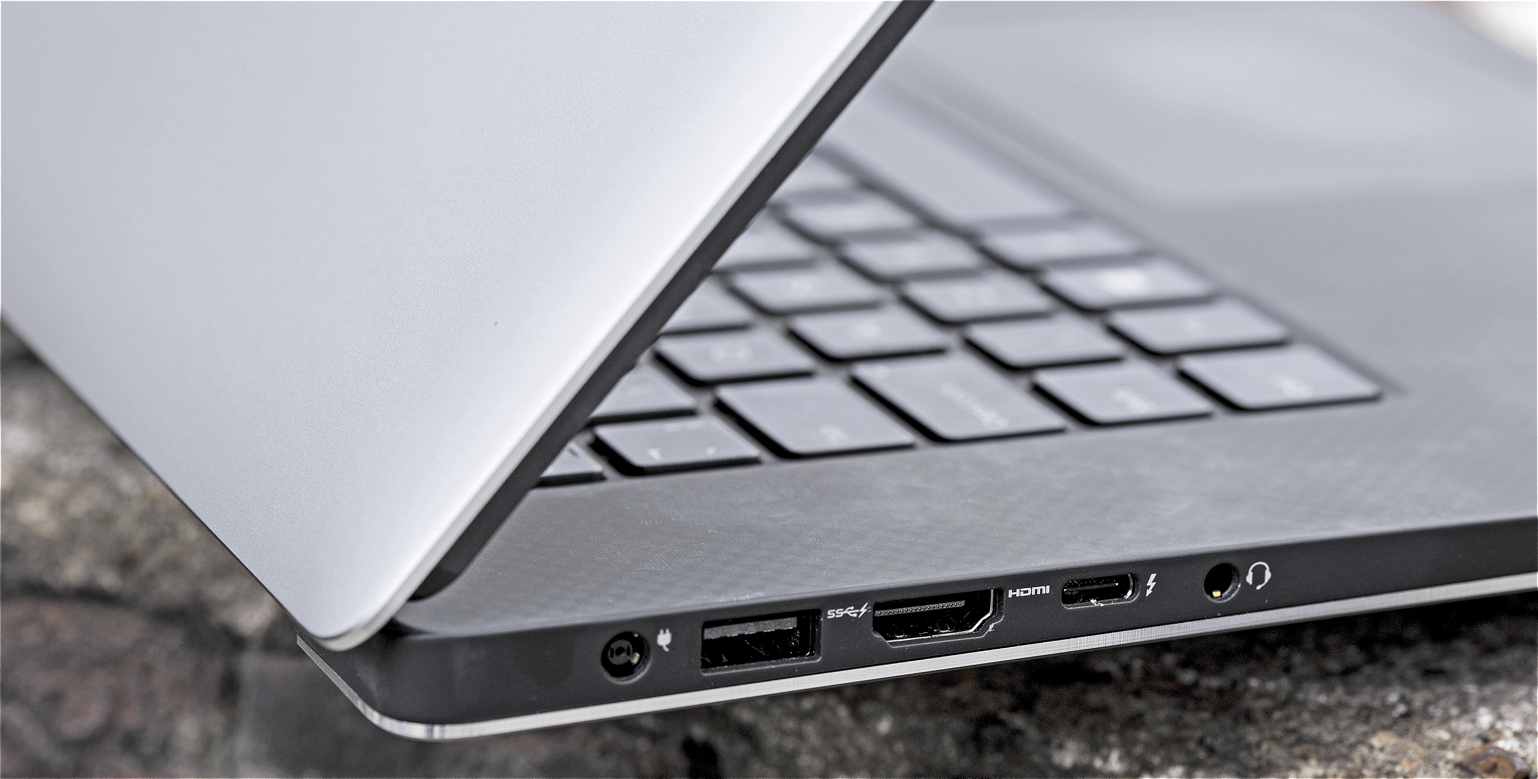Thunderbolt flaw exposes millions of PCs to attack
Hackers can bypass lock screens and hard drive encryption to copy data from targeted devices


Thunderbolt ports can be exploited by anyone who gains physical access to any PC built before 2019, with attackers able to read and copy all data on the device.
Attackers can bypass the login screens of locked computers, as well as hard drive encryption on Windows and Linux PCs with Thunderbolt ports to gain access to data stored on the device. Some Mac devices are also affected.
Should hackers be within physical proximity of a device, they can unscrew the backplate, attach a device, reprogramme the firmware and gain full access to the laptop, according to security researcher Björn Ruytenberg.
These ‘Thunderspy’ attacks, Ruytenberg continued, rely on seven vulnerabilities found so far, ranging from weak device authentication schemes, to use of unauthenticated device metadata, to no Thunderbolt security on Boot Camp.
“Despite our repeated efforts, the rationale to Intel's decision not to mitigate the Thunderspy vulnerabilities on in-market systems remains unknown,” Ruytenberg said.
“Given the nature of Thunderspy, however, we believe it would be reasonable to assume these cannot be fixed and require a silicon redesign. Indeed, for future systems implementing Thunderbolt technology, Intel has stated they will incorporate additional hardware protections.”
All systems equipped with USB-C ports with Thunderbolt technology shipped between 2011 and 2020 are vulnerable. All Apple Macs released from 2011, apart from Retina MacBooks, offer Thunderbolt connectivity and are also therefore vulnerable.
Get the ITPro daily newsletter
Sign up today and you will receive a free copy of our Future Focus 2025 report - the leading guidance on AI, cybersecurity and other IT challenges as per 700+ senior executives
Some systems manufactured in 2019 with Kernel direct memory access (DMA) Protection, however, are safeguarded against Thunderspy attacks, but only partially. Kernel DMA Protection doesn’t mitigate against all vulnerabilities, the researcher added.
As a result, effectively, all devices released before 2019 remain fully vulnerable to Thunderspy forever, including those manufactured last year without Kernel DMA Protection.
“We constantly monitor the security landscape and value work that help us identify new potential threats,” an HP spokesperson told IT Pro.
RELATED RESOURCE

Introducing VMDR: Vulnerability Management, Detection and Response
The all-in-one vulnerability management service
“Our existing security bulletin provides home PC mitigations for open case DMA pre-boot type attacks. It’s important to remember that such attacks require physical access to the device. The security of our customers is always a top priority and we always encourage people to keep their systems up to date.”
"Dell is aware of the Thunderbolt security research described by researchers as “Thunderspy.”," a spokesperson told IT Pro. "Dell Client Consumer and Commercial platforms that shipped starting in 2019 have Kernel DMA protection when SecureBoot is enabled."
"Since this attack requires physical access, we recommend customers follow security best practices and prevent unauthorized physical access to devices."
Cyber security specialist with ESET, Jake Moore, said Thunderspy is an impressive attack, adding it’s difficult to defend against as there's very little that could mitigate it.
“There is still some simple advice that can be effective: you should never leave your computer unattended for any given time,” he said. “Luckily, given the current social distancing in place, it would seem only your household could be the hacker culprits.
“Being able to alter the firmware of the internal chip and changing the security settings to allow access to any device is impressive, and although Thunderbolt port attacks are nothing new, they can be extremely damaging and infuriatingly difficult to patch.
“Therefore, in the meantime, I would advise that users avoid connecting unknown or untrusted devices to PC ports, and that the Thunderbolt port isn’t used by those who still work around people or who may be particularly vulnerable to an attack.”
Intel has confirmed it was approached in February with reports of 'Thunderspy' attack, and that researchers were not able to demonstrate successful exploitation with Kernel DMA Protection mitigation enabled.
"For all systems, we recommend following standard security practices, including the use of only trusted peripherals and preventing unauthorized physical access to computers," Intel's Director of Communications Jerry Bryant said.
"As part of the Security-First Pledge, Intel will continue to improve the security of Thunderbolt technology, and we thank the researchers from Eindhoven University for reporting this to us."

Keumars Afifi-Sabet is a writer and editor that specialises in public sector, cyber security, and cloud computing. He first joined ITPro as a staff writer in April 2018 and eventually became its Features Editor. Although a regular contributor to other tech sites in the past, these days you will find Keumars on LiveScience, where he runs its Technology section.
-
 Should AI PCs be part of your next hardware refresh?
Should AI PCs be part of your next hardware refresh?AI PCs are fast becoming a business staple and a surefire way to future-proof your business
By Bobby Hellard
-
 Westcon-Comstor and Vectra AI launch brace of new channel initiatives
Westcon-Comstor and Vectra AI launch brace of new channel initiativesNews Westcon-Comstor and Vectra AI have announced the launch of two new channel growth initiatives focused on the managed security service provider (MSSP) space and AWS Marketplace.
By Daniel Todd
-
 Hackers are targeting Ivanti VPN users again – here’s what you need to know
Hackers are targeting Ivanti VPN users again – here’s what you need to knowNews Ivanti has re-patched a security flaw in its Connect Secure VPN appliances that's been exploited by a China-linked espionage group since at least the middle of March.
By Emma Woollacott
-
 Broadcom issues urgent alert over three VMware zero-days
Broadcom issues urgent alert over three VMware zero-daysNews The firm says it has information to suggest all three are being exploited in the wild
By Solomon Klappholz
-
 Nakivo backup flaw still present on some systems months after firms’ ‘silent patch’, researchers claim
Nakivo backup flaw still present on some systems months after firms’ ‘silent patch’, researchers claimNews Over 200 vulnerable Nakivo backup instances have been identified months after the firm silently patched a security flaw.
By Solomon Klappholz
-
 Everything you need to know about the Microsoft Power Pages vulnerability
Everything you need to know about the Microsoft Power Pages vulnerabilityNews A severe Microsoft Power Pages vulnerability has been fixed after cyber criminals were found to have been exploiting unpatched systems in the wild.
By Solomon Klappholz
-
 Vulnerability management complexity is leaving enterprises at serious risk
Vulnerability management complexity is leaving enterprises at serious riskNews Fragmented data and siloed processes mean remediation is taking too long
By Emma Woollacott
-
 A critical Ivanti flaw is being exploited in the wild – here’s what you need to know
A critical Ivanti flaw is being exploited in the wild – here’s what you need to knowNews Cyber criminals are actively exploiting a critical RCE flaw affecting Ivanti Connect Secure appliances
By Solomon Klappholz
-
 Researchers claim an AMD security flaw could let hackers access encrypted data
Researchers claim an AMD security flaw could let hackers access encrypted dataNews Using only a $10 test rig, researchers were able to pull off the badRAM attack
By Solomon Klappholz
-
 A journey to cyber resilience
A journey to cyber resiliencewhitepaper DORA: Ushering in a new era of cyber security
By ITPro